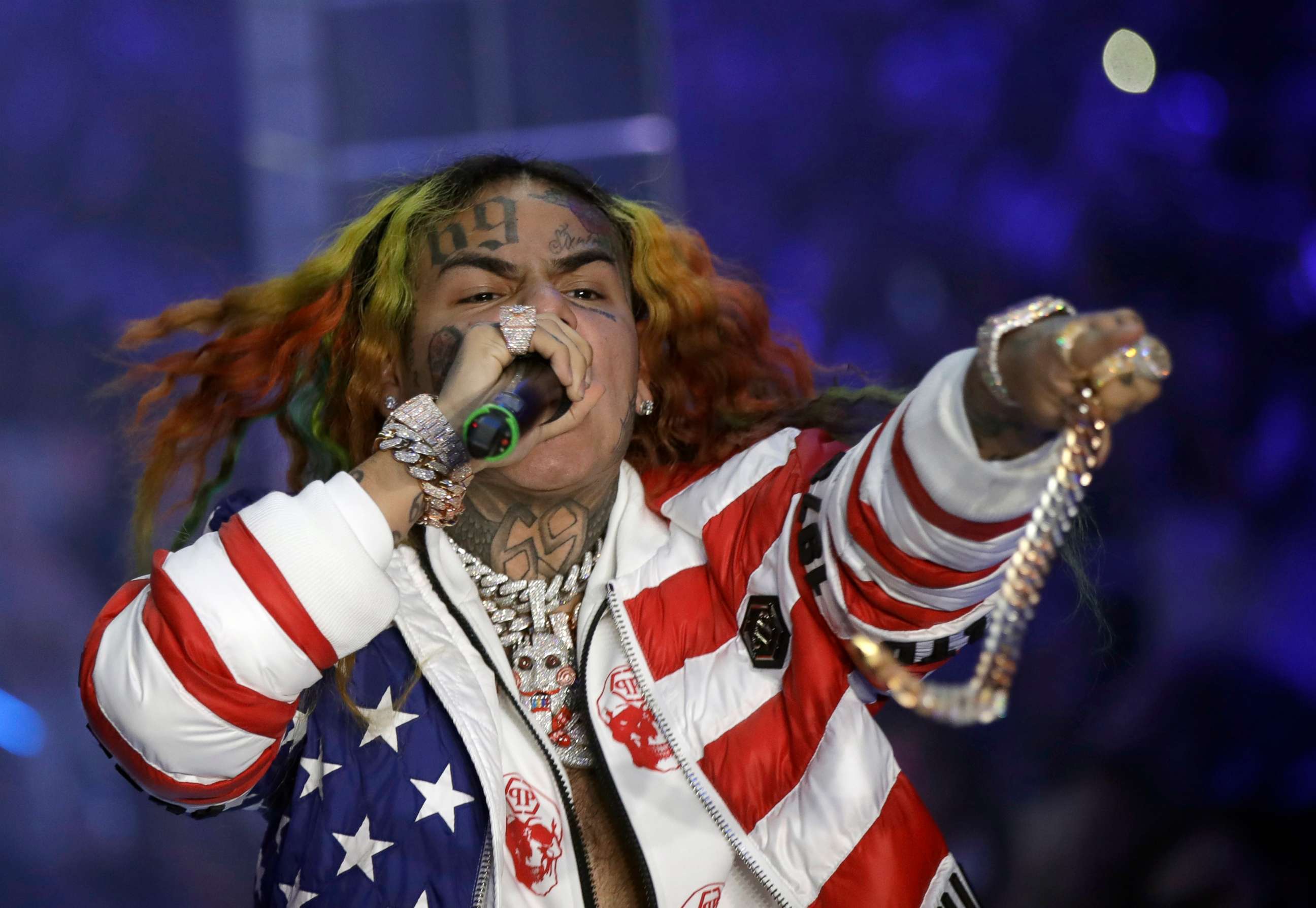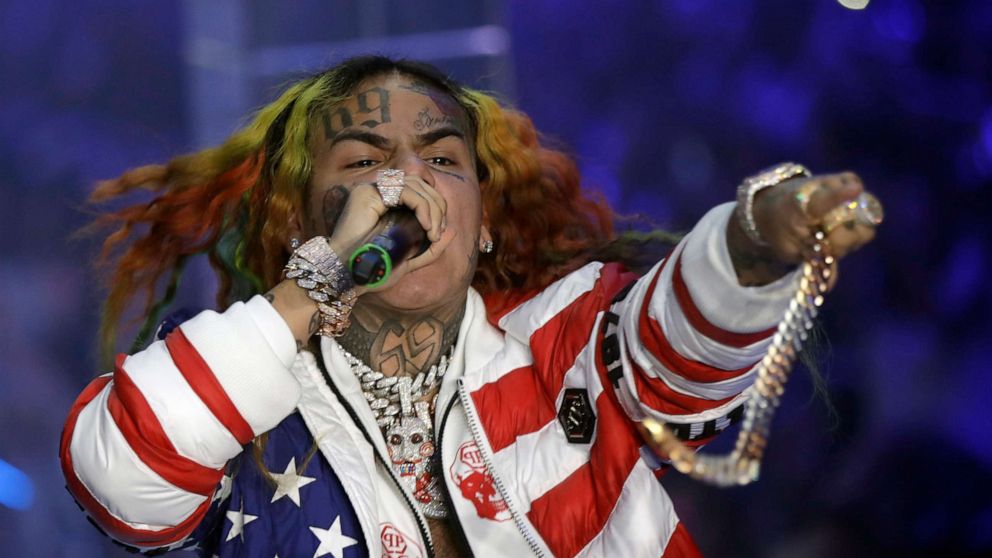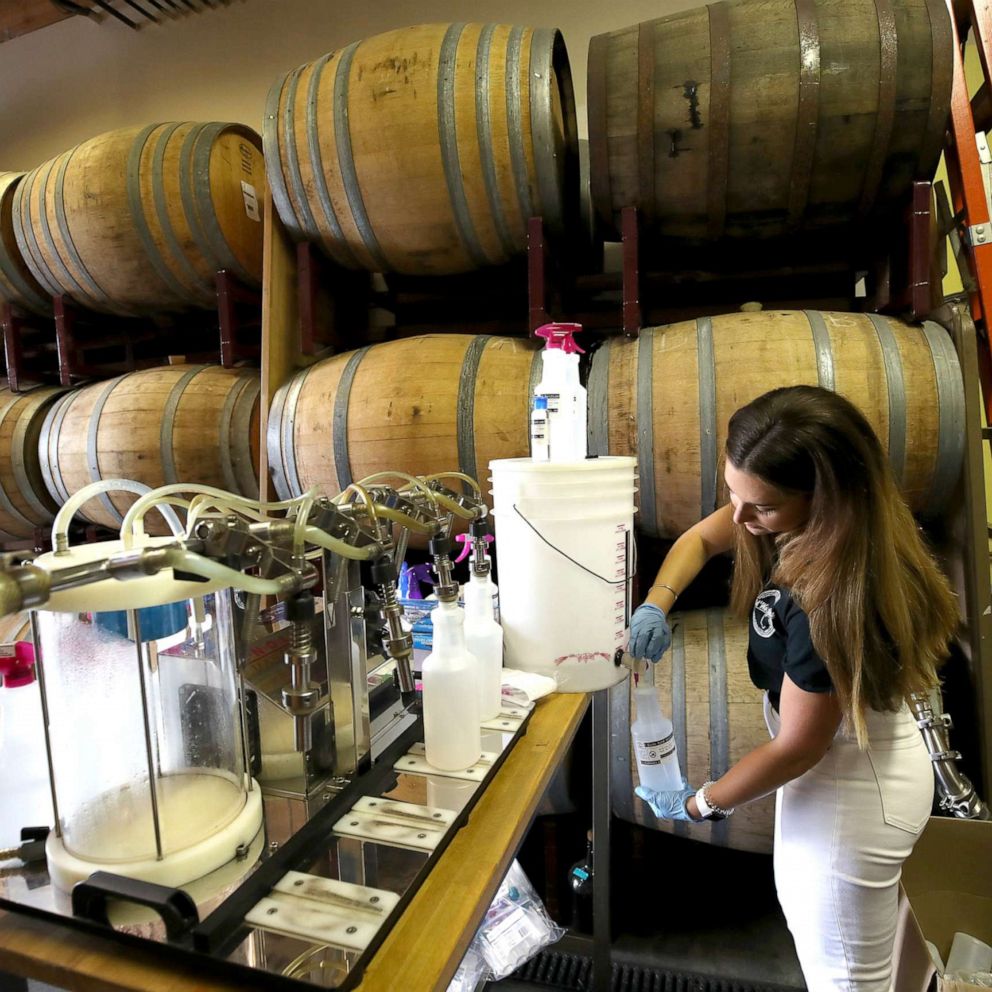Rapper Tekashi69 granted early release from prison over coronavirus concerns
Tekashi69, the rainbow-haired rapper turned government cooperator, was granted early release from prison after a federal judge determined that he faced an elevated risk of severe medical problems if he were to contract COVID-19 disease behind bars. The 23-year Brooklyn-born artist, whose real name is Daniel Hernandez, suffers from severe asthma.
In granting Hernandez's release on compassionate grounds, U.S. District Court Judge Paul Engelmayer determined that the circumstances in the case were "extraordinary and compelling."
"The COVID-19 pandemic is extraordinary and unprecedented in modern times in this nation. It presents a clear and present danger to free society for reasons that need no elaboration," Engelmayer wrote in his order. "COVID-19 presents a heightened risk for incarcerated defendants like Mr. Hernandez with respiratory ailments such as asthma."
Lawyers for the platinum-selling artist first raised concerns that Tekashi69 was at high-risk of serious health complications or death in a series of letters to Engelmayer over the last two weeks. Federal prosecutors in New York initially contested an early release on procedural grounds, but told Engelmayer in a letter on Wednesday that they no longer opposed it.
According to the US Centers for Disease Control and Prevention, people with serious underlying medical conditions, including moderate to severe asthma, may be at higher risk of serious illness from COVID-19.
"Mr. Hernandez has been complaining to prison officials this week of shortness of breath, but apparently the warden of his facility will not allow Mr. Hernandez to go to the hospital despite the recommendation of the facility’s medical director that Mr. Hernandez be treated by a doctor at a hospital," attorney Lance Lazarro wrote on March 24.
Lazarro did not immediately reply to an email from ABC News.
As the COVID-19 pandemic has spread throughout the United States, leading to unprecedented stay-at-home orders in most of the country, health officials, attorneys and advocates for prisoners have been warning for weeks of an impending crisis in the nation's jails and prisons and urging federal, state and local governments to take urgent action to release high-risk inmates.
“People refer to cruise ships as petri dishes, but nobody has invented a more effective vector for transmitting disease than a city jail,” Martin Horn, a former New York City corrections commissioner, told ABC News in March.
At least 29 inmates and 30 staff members have tested positive for COVID-19 in federal prisons across the country. Four inmates have died at FCI Oakdale in Louisiana.
The Federal Bureau of Prisons announced that, starting on Wednesday, "inmates in every institution will be secured in their assigned cells/quarters to decrease the spread of the virus,” for the next 14 days.

In his ruling made public Thursday, Judge Engelmayer took particular note of the unique dangers faced by high-risk prisoners like Hernandez.
"[T]he crowded nature of municipal jails such as the facility in which Mr. Hernandez is housed present an outsize risk that the COVID-19 contagion, once it gains entry, will spread," Engelmayer wrote. "And, realistically, a high-risk inmate who contracts the virus while in prison will face challenges in caring for himself."
Hernandez, who is also known as "6ix9ine," rocketed to international fame in late 2017 with the release of his debut single "Gummo."
A year later he was arrested by federal authorities and indicted on racketeering, drug trafficking and weapons charges, along with several other members of the Nine Trey Gangsta Bloods, a violent New York street gang. Hernandez was facing the possibility of more than 30 years in prison, if convicted. But he struck a deal, which prosecutors say led to the guilty pleas of several of his co-defendants. Hernandez also testified publicly for three days last year at the trial of reputed gang members Anthony Ellison and Aljermiah Mack, who were both found guilty on charges of racketeering conspiracy.
Tune into ABC at 1 p.m. ET and ABC News Live at 4 p.m. ET every weekday for special coverage of the novel coronavirus with the full ABC News team, including the latest news, context and analysis.
Federal prosecutors credited Hernandez with providing "critical insight into the structure and organization" of the gang and described his assistance to the government as "incredibly significant and extremely useful," according to court records. Last December, Engelmayer imposed a two-year sentence on Hernandez, who by then had already been locked up for 13 months. Because of his cooperation with prosecutors, Hernandez has been held at a private prison facility in Queens for his protection from potential retaliation from gang members.
At the request of the U.S. Attorney's Office in Manhattan, Engelmayer delayed the public release of his order by a day in order to give federal marshals enough time to safely transport Hernandez from the jail to an undisclosed residence, where he will serve the remainder of his sentence in home confinement. He was due to be released in early August.
The early release of Hernandez due to the coronavirus threat comes as other high-profile inmates, including R. Kelly, Michael Avenatti and Michael Cohen, have petitioned courts to grant temporary release or to convert the remainder of their sentences to home confinement.
Kelly asked a federal judge in Chicago last week to release him pending trial on charges including sexual exploitation of children and child pornography. In a filing in U.S. District Court, attorneys for the 53-year-old R&B star warned of a "coming jail epidemic" and argued that "requiring people to reside in a custodial jail setting" during a worldwide pandemic is "tantamount to making them drink poison."
Kelly has pleaded not guilty to the federal charges.
The court has given federal prosecutors until April 15 to respond to Kelly's motion, along with an explanation as to how the Bureau of Prisons is addressing COVID-19 at the Metropolitan Correctional Center in Chicago, where Kelly is detained.
Avenatti, the former attorney for adult film star Stormy Daniels, was convicted earlier this year on charges that he tried to extort millions of dollars from Nike. He has not yet been sentenced. He is also facing two more trials on allegations that he defrauded Daniels and other clients.
Currently housed at the Metropolitan Correctional Center in New York City, the 49-year-old Avenatti has proposed that, if granted temporary release, he would stay with a friend in Los Angeles for 90 days under strict monitoring.
"Mr. Avenatti is at extreme risk of contracting Covid 19 at the MCC," his attorneys wrote in a court filing last week. "His health has been compromised by pneumonia in the last 9 months, and he is more susceptible than most to the Covid 19 respiratory virus."
Prosecutors are opposing Avenatti's motion, arguing in court filings that he is no more at risk than any other pre-trial detainee at MCC and could not be trusted to abide by any conditions of release set by the court.
"[Avenatti] is a healthy 49-year-old man who, after he committed crimes and hid assets while on pre-trial supervision, this Court found to be an 'ongoing danger' that was 'real and palpable,'" prosecutors wrote in a court filing last week.
U.S. District Court Judge James Selna wrote in an order last week that "Avenatti has demonstrated that the Covid-19 virus and its effects in greater New York City" constitute a compelling reason to grant temporary release, but he has yet to be satisfied with Avenatti's proposed conditions of release. A decision on Avenatti's request could come at any time.
Cohen, the former personal attorney for President Donald Trump, asked a federal judge earlier this month to end his sentence early or to convert the remainder to home confinement. His attorney argued in a letter to the court that the New York prison where Cohen is housed is ill-prepared to protect inmates from contracting the virus.
"Mr. Cohen has had two hospitalizations, and a pre-existing condition of pulmonary issues," wrote Cohen's lawyer, Roger Adler, who argued that Cohen's three-year sentence for financial crimes "should not end up being a capital crime depriving my client of his life."
Cohen's motion was rejected by U.S. District Judge William Pauley.
"That Cohen would seek to single himself out for release to home confinement appears to be just another effort to inject himself into the news cycle," Pauley wrote in a brief order last week. "Ten months into his prison term, it’s time that Cohen accept the consequences of his criminal convictions for serious crimes that had far reaching institutional harms."
What to know about the novel coronavirus:
- How it started and how to protect yourself: coronavirus explained
- What to do if you have symptoms: coronavirus symptoms
- Tracking the spread in the US and worldwide: coronavirus map







